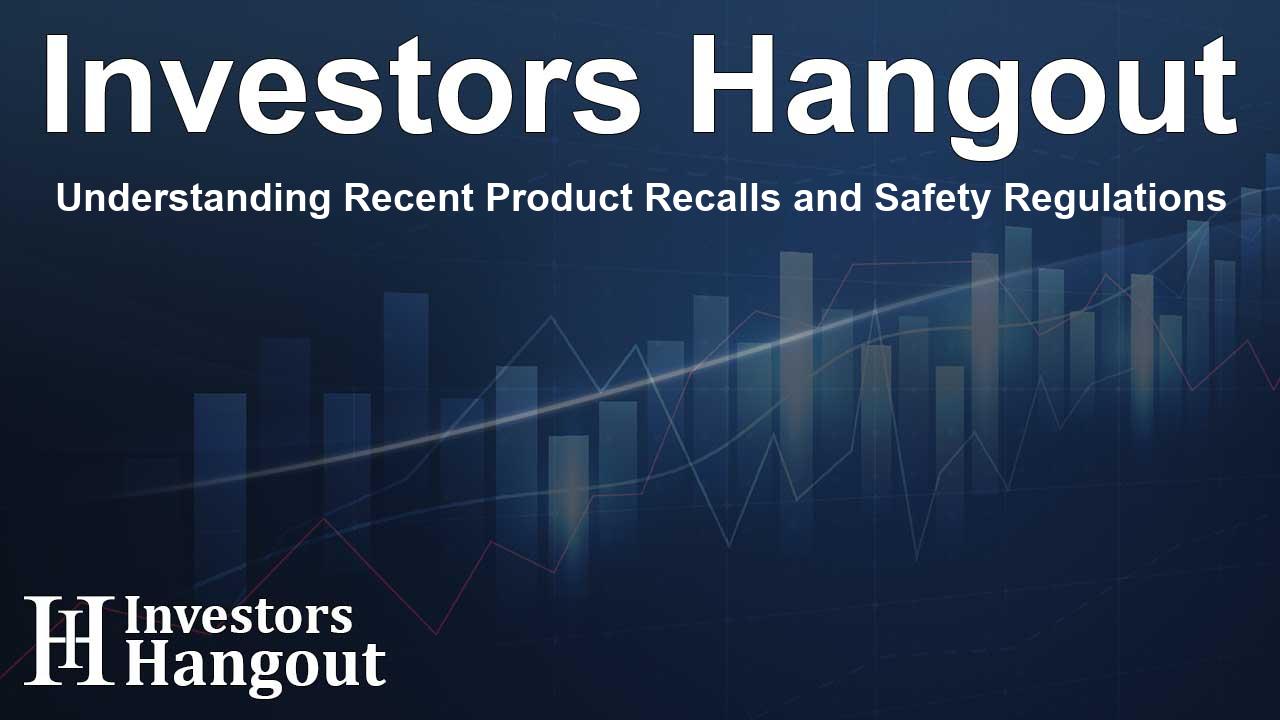Understanding Recent Product Recalls and Safety Regulations

Understanding Product Recalls
Product recalls are a critical part of ensuring consumer safety. When a company discovers a potential risk associated with one of its products, it works closely with regulatory agencies to inform the public. This collaboration helps mitigate the dangers that may arise from using defective products.
Recent Noteworthy Recalls
Multiple brands have recently announced recalls, highlighting the importance of safety in manufacturing. Each recall represents a commitment to consumer well-being. One notable case involves TravisMathew, which has recalled women's sweatshirts and hoodies due to a burn hazard. This recall illustrates the necessity for compliance with federal flammability regulations.
Burn Hazard from Apparel
In the apparel industry, burn hazards can be serious. The TravisMathew recall serves as a reminder to check the labels and safety reports of clothing items. Consumers wearing such clothing may face unintended, serious injuries.
Safety in Home Appliances
Similarly, Pella has issued a recall for sliding patio doors and windows following safety concerns related to battery ingestion hazards. This recall is part of a wider initiative to address violations of federal safety regulations that protect consumers from devices using button cell batteries.
Ingestion Risks from Household Items
This particular hazard underscores a critical point: devices in our homes should be safe for everyone, including children. The consequences of neglecting safety standards can be severe, highlighting the need for manufacturers to adhere strictly to compliance expectations.
Heavy Equipment Safety
The recall of heavy equipment, such as those by Doosan Bobcat North America concerning lawn mower attachments due to crush hazards, also illustrates another facet of product safety. Heavy machinery must undergo rigorous testing to prevent incidents that could lead to serious injury.
Preventing Crush Hazards
Crush hazards can occur unexpectedly with heavy machinery if safety mechanisms are inadequate. Companies like Doosan Bobcat are taking proactive measures to ensure that their products are safe and compliant, demonstrating a responsible approach to product management.
Child Safety and Home Products
Recent recalls also affect child safety products, like the UVIPC baby gates, which were recalled due to entrapment hazards. These products are vital in safeguarding toddlers in households, and their safety should be a priority for both manufacturers and consumers.
Entrapment Risks
Parents rely on baby gates to keep their young children safe. Entrapment hazards can pose serious risks, and the onus is on the manufacturers to assure the safety of their products.
Seasonal Equipment Safety
Another critical recall was from Ariens, which related to snow throwers due to laceration hazards. This claim highlights the risks associated with outdoor equipment especially during winter months when heavy snowfall can create additional challenges.
Laceration Hazard Awareness
Laceration injuries can occur more frequently during winter, and being aware of the safety of equipment used is paramount. Consumers should be diligent and pay attention to recall announcements regarding these products.
The Importance of Compliance
The U.S. Consumer Product Safety Commission (CPSC) plays an essential role in regulating public safety by overseeing consumer product recalls. Their rigorous approach helps prevent injuries and fatalities by monitoring and enforcing safety standards.
Regulatory Oversight and Public Safety
Success in reducing consumer product-related incidents over the past decades is largely due to the tireless efforts of organizations like the CPSC. Their commitment represents a broader societal goal of ensuring public safety.
For Lifesaving Information
When it comes to safety, being informed is crucial. Consumers are encouraged to stay updated about recalls impacting their purchased items. Regular visits to safety commission websites can provide lifesaving information and updates on product recalls.
How to Stay Informed
By registering for email alerts and following consumer safety updates through various channels, individuals can ensure they remain aware of the latest potential hazards associated with the products they own.
Frequently Asked Questions
What are product recalls?
Product recalls occur when a product is found to be unsafe and is removed from the market to protect consumers.
Why do companies conduct recalls?
Companies conduct recalls to mitigate risks associated with potential injuries and liability, ensuring consumer safety and regulatory compliance.
How can I stay informed about recalls?
You can stay informed by visiting the CPSC website and signing up for email alerts regarding product recalls.
What should I do if I own a recalled product?
If you own a recalled product, follow the guidance provided in the recall notice, which often includes returning the product or obtaining a refund.
How does the CPSC contribute to safety?
The CPSC works to ensure the safety of consumer products by monitoring compliance with safety regulations and implementing recalls when necessary.
About The Author
Contact Dylan Bailey privately here. Or send an email with ATTN: Dylan Bailey as the subject to contact@investorshangout.com.
About Investors Hangout
Investors Hangout is a leading online stock forum for financial discussion and learning, offering a wide range of free tools and resources. It draws in traders of all levels, who exchange market knowledge, investigate trading tactics, and keep an eye on industry developments in real time. Featuring financial articles, stock message boards, quotes, charts, company profiles, and live news updates. Through cooperative learning and a wealth of informational resources, it helps users from novices creating their first portfolios to experts honing their techniques. Join Investors Hangout today: https://investorshangout.com/
The content of this article is based on factual, publicly available information and does not represent legal, financial, or investment advice. Investors Hangout does not offer financial advice, and the author is not a licensed financial advisor. Consult a qualified advisor before making any financial or investment decisions based on this article. This article should not be considered advice to purchase, sell, or hold any securities or other investments. If any of the material provided here is inaccurate, please contact us for corrections.
